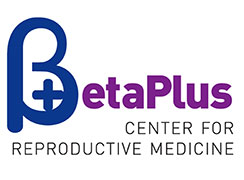This is a term used for pregnancies ending very early, even before they can be seen on an ultrasound check-up (which happens 5 weeks and 3 days after the first day of the last period at the earliest). We know that you got pregnant based on your positive beta HCG values (pregnancy hormone) in your blood or urine. However, within several days from your positive test, bleeding occurs and the pregnancy is terminated.
We believe that biochemical pregnancy is a case of embryo death immediately after its creation and before implantation. These pregnancies are very common and between 50 and 60 percent of all pregnancies are biochemical. Up until urine strips used as pregnancy tests were invented women weren’t even aware they were experiencing biochemical pregnancies. They simply thought their period was late. Most often biochemical pregnancy has no symptoms because pregnancy symptoms usually occur around week 6. However, women who have already been pregnant may feel breast sensitivity, morning sickness and tiredness.
The most common causes of biochemical pregnancies are:
- Chromosomal abnormalities – usually being the most common reason for miscarriage. The egg, or a sperm inseminating the egg, carry a chromosomal flaw which prevents the embryo to develop and it dies out;
- Uterine abnormality which can be congenital (septate uterus, double uterus, etc.) or acquired (fibroids) and may lead to embryo trying to implant in the unfavorable part of the uterus which causes the pregnancy to wither;
- Hormonal deficiency – some women have a second, luteal phase deficiency of hormones meaning that there are not enough hormones for the pregnancy to develop.
Periods following biochemical pregnancies can be very heavy, clotted and more painful than usual.
In women trying to conceive and undergoing assisted reproduction procedure a positive pregnancy test is something we aim for so that they are the ones in which we detect biochemical pregnancies most often. If beta HCG values measured two days after the first test are reduced by half we can be very certain that we’re dealing with a biochemical pregnancy. Therapy (curettage) is most often not needed because bleeding washes out all the signs of pregnancy as well. However, we advise visiting a gynecologist and doing an ultrasound check after a biochemical pregnancy.
A large majority of women who have experienced biochemical pregnancy will later on give birth to a live baby so that, even though it carries feelings of loss at a time of occurrence, biochemical pregnancies are also a good sign for couples trying to conceive.




